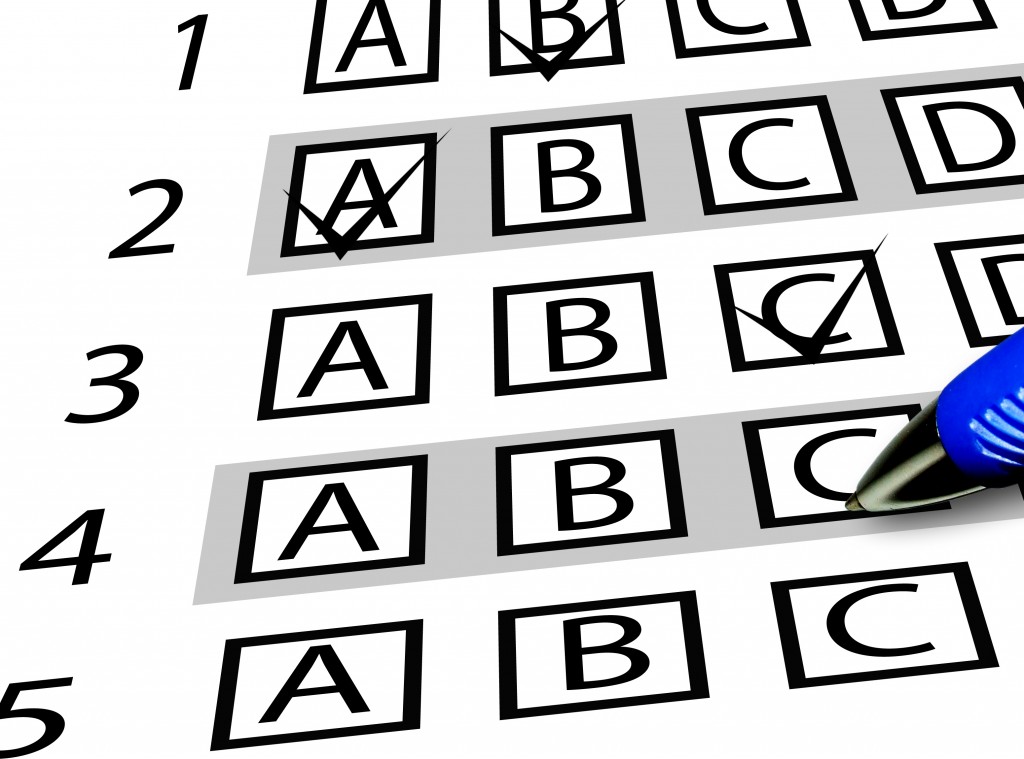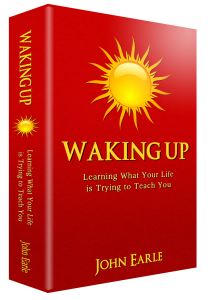The word “exam” often brings terror to the hearts of anyone who is, or ever has been, a student. So I wasn’t surprised when my Waking Up study group members were nervous when we planned a potluck get together to celebrate the completion of our time together, and then I mentioned the exam.
I decided I could make it easier, more fun, and less threatening if we split into groups of three. Each group could come up with their own answers. At the end of the exam I read the questions and the answers to groans and cheers.
The exam covers important highlights from the book, so I thought it might be a good idea to post it here for any readers who would like to give it a shot. Thee questions follow, and there is a link to a page that contains both the questions and the answers.This means you can relax and enjoy the quiz! Please be advised there are a couple of trick questions here. Assume nothing.
Questions for Waking Up readers.
1 – What is the vehicle that best describes the psycho-spiritual condition of 99 percent of earth’s inhabitants?
2- Name four strategies for learning what your life is trying to teach you. Did these names come quickly and easily?
3 – With which of the four strategies does one begin any personal discovery process?
4- Which strategy is always necessary before the others can be utilized most effectively?
5 – Without this strategy, personal growth is not possible, no matter how much awareness we have. Name it.
6 – What unexpected ally does one usually encounter when first practicing awareness? What temptation must we avoid?
7- What are the two biggest habits that prevent us from taking personal responsibility?
8- What critical inner gesture makes relationship a spiritual or conscious path?
9 – What is the title of the chapter that best describes this inner work?
10 – What is the main cause of human suffering according to the Buddha?
10a – What do Buddhist call the suffering we experience when we are determined that only one outcome of our expectations will satisfy us or we desperately want things to be different than they clearly are?
11- What is Rumi describing when he says “the same in ecstasy as in self hating fatigue?”
12 – In the poem No Room For Form Rumi asks, “Now, what shall we call this new sort of gazing house that has opened in our town, where people sit quietly and pour out their glancing, like light, like answering?” What action are these people taking? What is the “new sort of gazing house?”
13- What are the three distinct obstacles to enlightenment that Rumi mentions in this poem that we are still in thrall of today?
14 –How do the Tibetan Buddhists describe getting lost in the past? How do they describe getting lost in the future?
15- According to Joseph Campbell what is taking the mythical position of the guardian at the gate to enlightenment, and personal and spiritual growth, in our time?
16 – What does the author call it when we forget awareness and consciousness and are in the thrall of the ego?
17- What does Rumi mean by the expression “polishing the mirror?”
18 – How do we turn judgment of others into an ally?
19 – In order to manifest true personal power, which of the four strategies is most necessary?
20 – What is the seventh initiation of indigenous people and the main work of the Visionary?
21 – Why is our life our perfect teacher?
22 – The story of the secret garden is as perfect allegory for which of the four strategies?
23 – What is the balm that heals self judgment and makes us more compassionate and kind?
24 – When we encounter a rigid belief that (through awareness) we discover is not serving us, what is a powerful question we can ask to challenge the belief?
25 – What are two common quantitative values of time? Which value is most helpful for inner work and calm?
26 – When meditating, what is the best way to handle distracting thoughts? Can you remember the expression by H.W.I. Poona that describes this?
27 – What is the name of the poem by Rumi that describes the magnificent gesture?
28 – In the ancient Egyptian poem, Coming Forth by Day, the supplicant prays to “always know the reason for my becoming.” 3000 years later, and 763 years ago, Rumi tells us that “for sixty years I have been forgetful.” What is the “reason for our becoming” and what is Rumi forgetful about?
29 –When first learning to speak our truth without judgment or blame, we can use a helpful and powerful action tool called _________________?
30 – We borrow this powerful practice of connecting the eyes with the heart from the masters. What is it called?
31 – What do we call a conversation in which both parties are more intent on their own observations than in listening to each other? What is a useful simile for remembering this behavior?
32 – According to Thursky Rinpoche, in this life, before we can walk across the corridor to where the feast is laid we have to do one thing. What is the feast and what is the one thing we must do?
33- According to Rumi, “Mystics are “experts in laziness.” Why is this so? What quality are they embracing?
44 – Who is the only person who can bring kindness and peace into the world?
45 – What energies and qualities always arise in conjunction with an expanding consciousness?
46 – Who is Khidr, the mystical guide of the sufis?
47 – What does Mojud have to do in order to become conscious and to fully discover Rumi’s “elegant patterning?”
48 – Why is Mojud’s life “inexplicable” and why does it bode so well for us?



 Using four, powerful but simple strategies, learn what the challenging stories in your life are trying to teach you.
Using four, powerful but simple strategies, learn what the challenging stories in your life are trying to teach you. 


No comments yet.